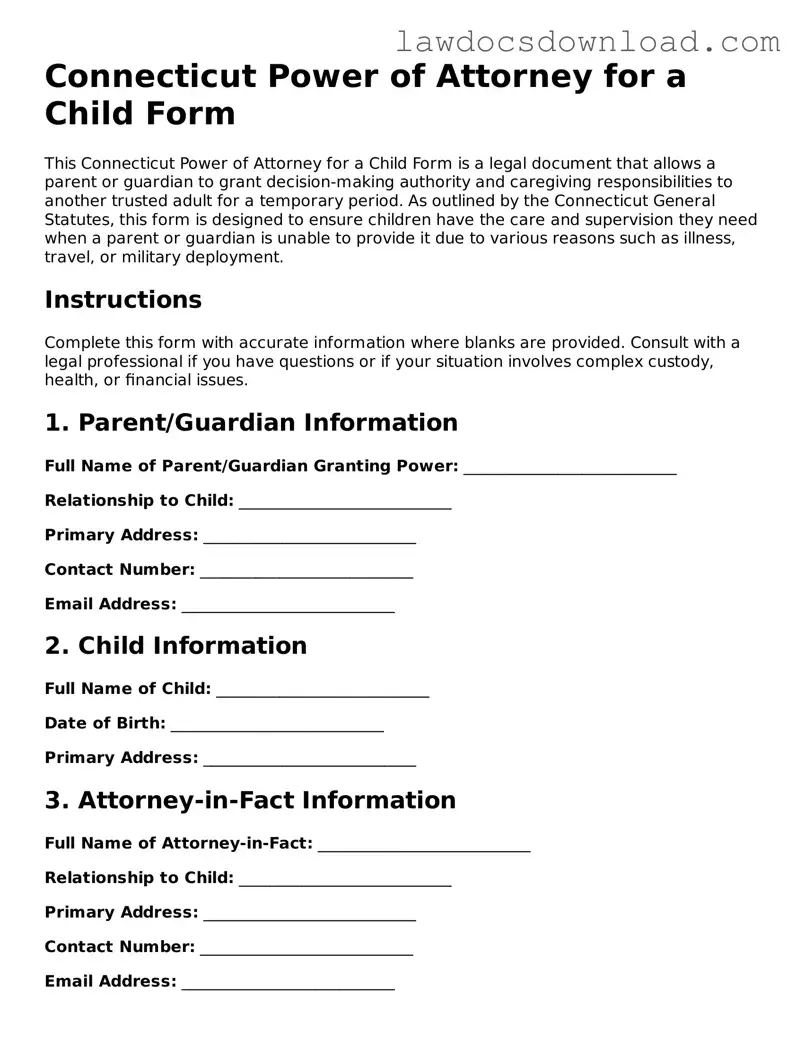Legal Connecticut Power of Attorney for a Child Form
The Connecticut Power of Attorney for a Child form is a legally binding document that enables a parent or legal guardian to grant another individual the authority to make decisions and carry out responsibilities concerning the care of a minor child. This delegation of authority can cover various aspects of the child's welfare, including education, healthcare, and general supervision. Such delegation proves especially pivotal in circumstances where the parent or legal guardian may be unable to fulfill these roles due to temporary absence or incapacity.
Launch Power of Attorney for a Child Editor Here

Legal Connecticut Power of Attorney for a Child Form
Launch Power of Attorney for a Child Editor Here

Launch Power of Attorney for a Child Editor Here
or
Free Power of Attorney for a Child
Get this form done in minutes
Complete your Power of Attorney for a Child online and download the final PDF.